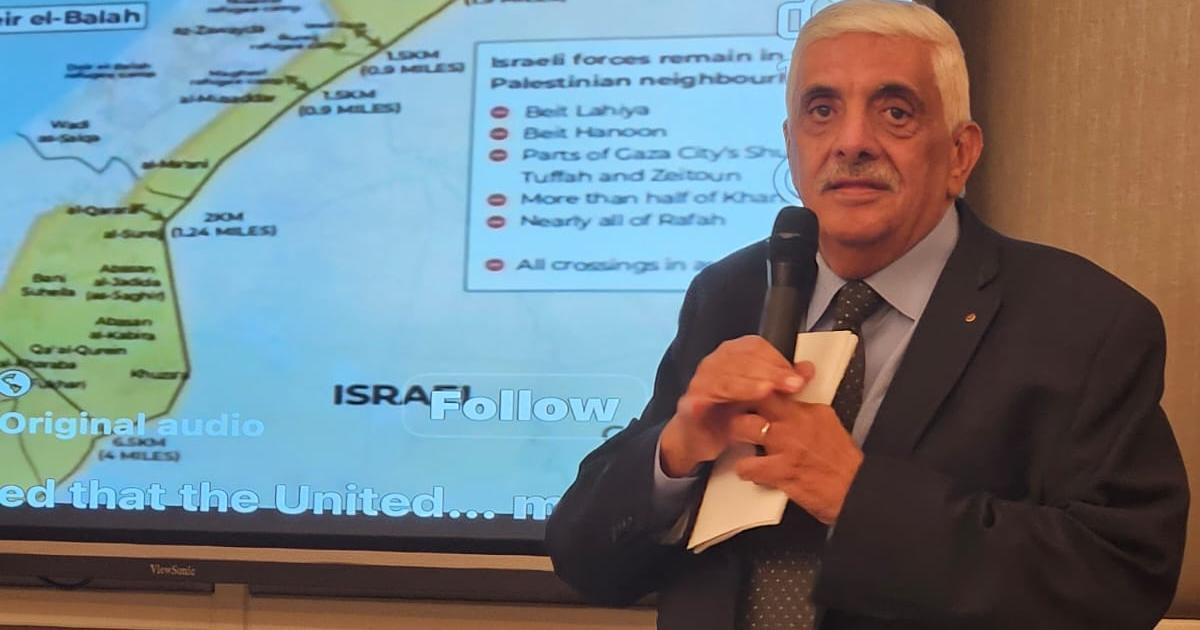
Gaza's Future Remains Uncertain, Says Award-Winning Journalist Daoud Kuttab
Kuttab spoke at the Rotary Amman Cosmopolitan Club. Wednesday attendees heard a detailed analysis of Gaza's history, current challenges, and the wider regional geopolitical shifts affecting the Palestinian territories.
He began by tracing the historical evolution of Gaza, which, after the 1956 Suez invasion and subsequent retreat, Israel kept to itself further Palestinian territory. The“Gaza envelope”-areas that were attacked during the Al Aqsa Deluge, became part of Israel and a target of Israeli settlements, were actually part of the Palestinian Gaza between 1948-1956.
The speaker noted that Israel continues to dictate the future of Gaza now, with the approval of the United Nations Security Council.“The current UN resolution allows Israel to maintain control over eastern parts of the tiny Gaza Strip, claiming that they will only withdraw when Israel is satisfied that the entire Gaza Strip has been demilitarized of Palestinian fighters,” Kuttab explained, emphasizing the imbalance of power in the region in favor of the Israeli occupiers.
Nevertheless, Kuttab noted discernible shifts in regional dynamics, including the role of Saudi Arabia's which insists on a credible path to Palestinian statehood as it also pursues a U.S.-backed defense pact. He also noted rising global support for Palestinians, especially among young people and traditionally pro-Israel communities in the U.S.“Polls now show, for the first time, more Americans supporting Palestinians than Israelis,” he said.
On Jordan's role, Kuttab noted the country's marginal involvement in Gaza is due to its lack of direct relations with Hamas and its focus on the West Bank and the custodianship of holy places in Jerusalem, including Al-Aqsa Mosque.
The lecture addressed the complexities of demilitarization, international oversight of reconstruction, and broader Middle East geopolitics, including Syria, Iraq, and Gulf states. Kuttab stressed that while UN resolutions and international diplomacy are crucial,“the daily reality in Gaza is still shaped by violence, poverty, and political uncertainty.”
Kuttab concluded with cautious optimism, noting that despite setbacks, international attention and conditional agreements may provide a pathway, however limited, toward dialogue, reconstruction, and eventually, a credible route toward Palestinian statehood.
To hear the entire lecture

Legal Disclaimer:
MENAFN provides the
information “as is” without warranty of any kind. We do not accept
any responsibility or liability for the accuracy, content, images,
videos, licenses, completeness, legality, or reliability of the information
contained in this article. If you have any complaints or copyright
issues related to this article, kindly contact the provider above.


















Comments
No comment